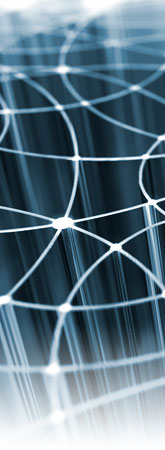Talks

1st DL.org Workshop, 1 October 2009 within ECDL2009, 27 September - 2 October 2009, Corfu, Greece
Resources: Speaker Profiles; Workshop Outcomes; BlogCast from the WorkshopInsights into Interoperability: 1st DL.org Booklet on Digital Library Interoperabilty, Best Practices & Modelling Foundations
Talk Summaries & Downloads
Keynote - Interoperability Challenges in Digital Libraries, Stefan Gradmann, Humboldt University
Stefan Gradmann’s keynote explores interoperability challenges from the perspective of Europeana, a multilingual access point to Europe’s cultural heritage, where interoperability plays a fundamental role. The talk evaluates interoperability aspects of selected frameworks for DL modelling, including the DELOS DL Reference Model, as well as abstraction levels, with the aim of pinpointing the conceptual and political complements to the technical approach in DL.org. The talk illustrates how interoperability challenges in DLs are mostly conceptual with some technical issues and a few political aspects impacting on this core notion.Keywords: DL interoperability, DL modelling frameworks, Europeana
Welcone Session,Chair - Costantino Thanos (ISTI-CNR)
Welcome & Introduction - Donatella Castelli, ISTI-CNR, Yannis Ioannidis, University of Athens, Seamus Ross, University of Toronto
The Introduction to the 1st DL.org Workshop outlines the project’s objectives with special emphasis on important knowledge exchange through the six thematic Working Groups aimed at identifying and deliberating the most important interoperability issues for large-scale Digital Libraries, evaluating proposed solutions and contributing to the enhanced version of the DELOS Reference Model. The talk also highlights the important contributions of the Liaison Group, which serves as a consultation body and helps to validate the outcomes, as well as the role of the External Advisory Board, which shapes the strategic direction and evaluates the outcomes of the project.
DL.org Reference Model, Leonardo Candela, ISTI-CNR
This talk spotlights two key outputs of the DELOS Network of Excellence (NoE): the Digital Library Manifesto, which introduces the main notions typical of the DL domain, and the Reference Model, which draws clear distinctions between DLs, DL Systems (DLSs) and DL Management Systems (DLMSs) and captures the fundamental concepts of the six DL domains. The talk also highlights the major releases of the Reference Model planned for October 2009 and September 2010, by amplifying and enhancing the Model through the contributions of DL practitioners and stakeholder participation.
Session 1 – Report & Vision from Content, Functionality, and User Working Groups
Chair - Geneva Henri, Rice University
Content Interoperability, Content Working Group
Workshop testimonial: Donatella Castelli, ISTI-CNR
The talk on content interoperability describes the mission and scope of the Working Group, placing emphasis on specific interoperability problems in this domain, particularly in terms of information objects, abstraction levels and metadata. The talk focuses on the subset of information objects that characterise aspects related to common interoperability issues: information object attributes, format, context, provenance, and identifier. The talk also explains how the Working Group is developing a comprehensive interoperability framework that captures the multi-faceted nature of interoperability issues and solutions, as well as evaluating existing approaches and solutions.
Keywords: information objects, format, attributes, context, provenance, identifier, metadata
Functionality Interoperability, Functionality Working Group
Workshop testimonial: Dagobert Soergel, University at Buffalo
This talk presents the main goals and ultimate objectives of DL.org’s Functionality Working Group, highlighting interoperability use cases and with special reference to the Function Interoperability Framework that the Working Group will produce, as well as scenarios and requirements for interoperability and reuse in the functionality domain. Interoperability issues include Application Programming Interface (API) mismatch, as well as mismatches in programming environments and data formats. The talk also draws attention to the need to set up an environment in which the DL community can produce a database of function descriptions.
Keywords: functionality profile, DL software system, software module
User Interoperability, User Working Group
Workshop testimonial:Yannis Ioannidis, University of Athens
The talk on user interoperability outlines the main goals of the dedicated DL.org Working Group, clarifying the concept of DL actor, as an individual, group of people acting in unison, or as inanimate entities (software programmes and interfaces). Examples and scenarios of user interoperability are provided. The talk also explores a number of key issues, ranging from user modelling, interoperable user models, user profiling, user context, user management, interoperable user management, collaboration, participation and privacy, while also defining the scope of the dedicated Working Group within DL.org in terms of tackling interoperability issues
Keywords: DL actors, use-level interoperability, user profiling, user modelling
Session 2 – Report & Vision from Policy, Quality, and Architecture Working Groups
Chair - Seamus Ross, University of Toronto
Policy Interoperability, Policy Working Group
Workshop testimonials : Perla Innocenti, University of Glasgow, Seamus Ross, University of Toronto
This talk outlines the main goals, expected outcomes and scope of the DL.org project’s Working Group dedicated to Policy, briefly describing the policy concept within the DELOS Reference Model and the proposal to revise the policy domain and develop a policy framework to make a DL viable. The talk spotlights seven interoperability issues and explains how policy fits into these , exploring business-level interoperability and explaining the risks of a lack of policy interoperability. The talk highlights challenges in developing a policy framework faced by the Working Group as it explores largely uncharted territory. The talk also bringis into sharp relief the main issues identified and preliminary findings, in addition to presenting diverse interoperability scenarios for policy.
Keywords: busines-level interoperability, interoperability scenarios for policy, policy framework
Quality Interoperability, Quality Working Group
Workshop testimonials : Sarah Higgins, Digital Curation Centre (UK) & Giuseppina Vullo, University of Glasgow
Quality interoperability is synonymous with the ability for DLs to share a common, qualitative framework. The talk briefly describes the mission and focus of the Quality Working Group within DL.org. Special attention is drawn to key interoperability issues and preliminary findings aimed at enhancing the DELOS Reference Model and broadening the scope in terms of Quality models by defining, selecting and investigating core quality parameters deemed essential for a quality interoperability framework, while fostering new research into best practices and feasibility.
Keywords: DL quality parameters, quality interoperability framework
Architecture Interoperability, Architecture Working Group
Workshop testimonial : Leonardo Candela, ISTI-CNR
The talk opens with key definitions relating to the architecture domain, outlining the component-based approach and exploring architecture interoperability. The component profile with regard to architecture, the application framework and architectural interoperability approaches are discussed. While solutions can be borrowed from other related domains, standards only bring solutions to some extent, hence the need for guidelines and best practices to drive forward interoperability at the architecture level. The Architecture Working Group is focusing on the design and testing of interoperability approaches in concrete scenarios, particularly D4Science and DRIVER projects, as well as reference architecture for interoperability-oriented application framework.
Keywords:architectural components, component profile, application framework

